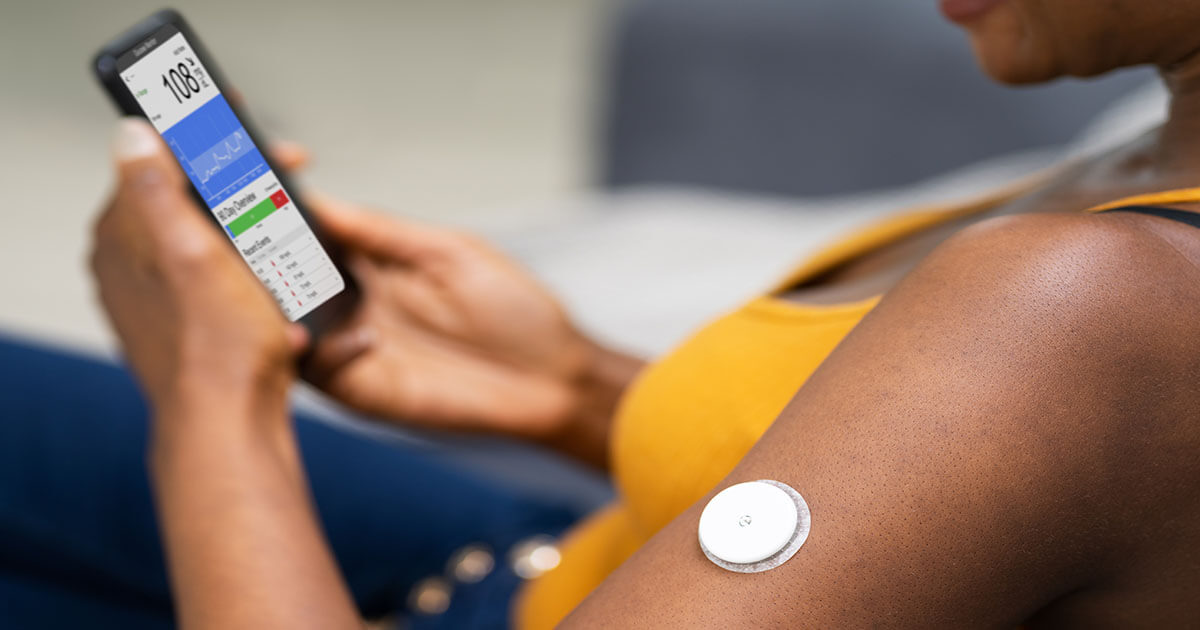Best Initiative for Children, Young People and Emerging Adults
In this category, the judges were looking for initiatives aimed at children, young people and emerging adults (up to 25 years old) with diabetes and their families. The initiatives could involve any element of the care pathway, whether clinical, educational, psychological or social well-being, and were welcomed from specialist, primary or community settings.
Winner
Making connections youth engagement toolkit
Submitted by Dani Cochrane on behalf of Diabetes Scotland
Diabetes Scotland aimed to improve the overall clinic experience for young people with type 1 diabetes and address issues of disengagement and poor glycaemic control in this group. Young people with diabetes aged 16–25 years were invited to participate in developing a “Youth Engagement Toolkit”. The toolkit aimed to develop and deliver innovative youth engagement training and supportive materials for healthcare professionals (HCPs) working in diabetes clinics in Scotland in order to encourage a more supportive and accommodating environment for youngsters at clinics. Not only did young people influence the content and direction of the toolkit, they also supported the co-delivery of workshops with HCPs, adding authenticity and ensuring meaningful participation. They were also encouraged to run local online groups to promote peer-support and shared learning. Initial feedback has been overwhelmingly positive.
Commended
Introducing joint multi-disciplinary clinics for children with T1DM and coeliac disease
Submitted by Gita Modgil, on behalf of the Paediatric Diabetes Team, Gastroenterology Team and Paediatric Dietitians, Musgrove Park Hospital
In 2014, Musgrove Park Hospital introduced a joint multi-disciplinary clinic consisting of the paediatric diabetes team, a gastroenterology clinician and specialist dietetic colleagues with knowledge and experience of both type 1 diabetes and coeliac disease. These clinics have eliminated the variability and equity factors of clinical care, and reduced the frequency of specialty clinic visits for children and families. This has, in turn, reduced cost, travel time, time away from the educational setting and time taken off work by parents. The programme amalgamated the investigations required to minimise venesection and to reduce the costs of multiple blood tests, creating more hospital follow-up appointment spaces for children requiring specialist gastroenterology and dietetic expertise. Feedback from parents, carers and young people has been extremely positive.
Commended
Helping children and families increase confidence in managing blood glucose
Submitted by Deborah Christie, on behalf of the Paediatric Diabetes Team, University College London Hospital
The intervention to improve overall metabolic control and reduce the daily burden of living with type 1 diabetes was developed in collaboration with children, young people and families. It took the form of workshops covering how insulin and food affect blood glucose levels, the potential impact of long-term high HbA1c, the effects of low and high blood glucose on daily living, self-management techniques and how to talk about diabetes with confidence. Preliminary results show a reduction in young people’s worries about diabetes, increased sharing of diabetes responsibility among families and a decrease in hypoglycaemic episodes. Participants were enthusiastic and positive, and would recommend the workshops. Parents were impressed by the level of knowledge their children had about diabetes. At the end of the groups, a leaflet written by the young people was produced.
Finalist
Children and Young People’s East and West Midlands Diabetes Networks: diabetes awareness education for schools – regional study day
Submitted by Marie Atkins, on behalf of the Birmingham Children’s Hospital/East and West Midlands Paediatric Diabetes Networks
Due to the increase in the incidence of type 1 diabetes in children and young people (CYP), diabetes teams are under increasing pressure to support school staff in the day-to-day management of their pupils with diabetes. To utilise the resources available regionally, the Children and Young People’s East and West Midlands Diabetes Networks’ steering groups developed a study day to provide basic diabetes awareness education to all school staff. This new initiative is available to nursery, primary and secondary schools and to college staff. Attendees found the day “enlightening, informative and engaging”. The steering group believes an ongoing programme of awareness days will raise the profile of diabetes within the educational sector and meet the expectations of both school staff and families of young people with diabetes in managing their chronic condition.
Finalist
Inside out paediatric diabetes – a 360 degree approach
Submitted by Jan Reddick, on behalf of the Paediatric Diabetes Team, Imperial College Healthcare NHS Trust
The team developed a culture of equality and reciprocity with its users (co-production), and a series of co-design sessions provided children and young people with the opportunity to construct a vision of their ideal service. Recurring themes included a venue that is more conducive to learning; hands-on support when carrying out calculations of carbohydrate content during actual food preparation and service; the involvement of other family members and several other agencies involved in the child’s care; and a greater time allocation for appointments. Through the training of schoolteachers, teaching assistants and catering staff – as well as parents and siblings, foster carers, social workers and young person practitioners – a solid foundation has been laid down for the seamless management of this chronic, lifelong condition.
Finalist
Improving children and young people diabetes services through co-production
Submitted by Usha Parkash, on behalf of the South East Coast & London Paediatric Diabetes Partnership network
This project is a co-production between commissioners and providers working with The South East Coast and London Paediatric Diabetes Partnership network, part of the National Children and Young People’s Diabetes Network. The initiative included sharing decision-making during clinical consultations, involving patients in the design and commissioning of future health services, and evaluating their care. The parent and CYP representatives group created a closed, monitored Facebook group for parents and families to come together to share experiences and offer peer support and dissemination of surveys seeking parent views and information for parents. This has led to more knowledgeable, satisfied families who come together to offer support to other parents and feedback to providers of paediatric diabetes services.
Other successes on the night
Diabetes care for children, young people and emerging adults had a successful night in many other QiC award categories. Eight other categories included paediatric initiatives, as well as the Judge’s Special Award.
Best Integrated IT/Digital Applications Initiative
Winner
#Type1uncut – digital resource for young adults with type 1 diabetes
Submitted on behalf of Diabetes UK/#Type1uncut Young People’s Group
The #Type1uncut initiative recognised the reduced life expectancy of young people with childhood-onset diabetes and highlighted failings in the effective transition of young adults from paediatric to adult care. The project recognised that young people between 18 and 30 years are an extremely vulnerable group facing significant life changes, so they set up a series of online resources to help young adults with type 1 diabetes manage their condition. The resources include videos about what it is like to live with type 1 diabetes, from chats about sex to tips on dealing with over-caring parents, with an emphasis on not sugar-coating the issues. Followers were encouraged to communicate on Twitter and Google Hangouts.
Finalist
Parent engagement for the Children and Young People’s East Midlands Diabetes Network and Children and Young People’s West Midlands Diabetes Network
Submitted by Marie Atkins, on behalf of the Birmingham Children’s Hospital/East and West Midlands Paediatric Diabetes Networks
Regional networks for CYP with diabetes have been very successful at engaging parent representatives to support the networks and to help clinicians listen to the views of parents and users of services. It was agreed that the Children and Young People’s East and West Midlands Diabetes Networks should have a higher level of user involvement, and they began using Skype to support parent representatives. These calls take place before the quarterly business and education meetings and allow parents to feed into the agenda and obtain the views of other parents across the region via social media. There is a follow-up Skype meeting afterwards to go through any issues arising.
Commended
Embracing technology to help promote self-care
Submitted by Neemisha Jain, on behalf of the Paediatric Diabetes Team, Surrey & Sussex Healthcare NHS Trust
Over the last 3 years, the paediatric diabetes team at Surrey and Sussex Healthcare NHS Trust (SaSH) has increasingly embraced using insulin pumps, continuous glucose monitoring (CGM), Diasend software, Carelink Professional software and electronic communication with patients. A diabetes-specific database was also created locally for collecting statistics and submitting data to the National Paediatric Diabetes Audit. The SaSH team now has 45% of patients on insulin pump therapy (well above national average) and seven on CGM. The software is used for every patient to download their blood glucose profile during clinic visits, thus facilitating focussed, patient-centred consultations. The new approach has improved glycaemic control of the young people and increased patient engagement and confidence, ensuring that when young people leave paediatric services they are confident and self-reliant in managing their chronic condition.
Best Peer-to-Peer Support Initiative
Winner (also Judge’s Special Award Winner)
The Highs & Lows children’s choir
Submitted by Sarah Lockwood-Lee on behalf of the Leicester Royal Infirmary Paediatric Diabetes Team
The Highs & Lows is a choir for children aged 7–16 years who have, or live with someone with, type 1 or type 2 diabetes. The idea was to offer the children and their parents support from the diabetes team in a non-clinical setting, and for the children and parents to offer support to one another. It helps them understand that diabetes should not hold them back and, for that one hour a week, they can be the same as their friends. They are taught how to breathe properly, sing, perform and have fun, while meeting other children with diabetes and realising they are not alone or abnormal. Parents also have the opportunity to meet and socialise, make new friends and discuss their lives with diabetes.
Finalist
Advocate for rights of children in education
Submitted by Danni Quinn, on behalf of the T1 rights at school group
T1 rights at school is a voluntary group which advises and supports parents who need help with their child’s care at school, not least with making sure they are fully included in all aspects of school life. Its activities include a Facebook group, with approximately 2000 members, where people can discuss and raise grievances, gain advice and support regarding school issues, share information and create awareness of the rights of our children at school. Advice is sought daily on all aspects of school life, including discrimination against pupils with type 1 diabetes. There have been a lot of successes from the school group, including supporting parents to gain an Education, Health and Care Plan and providing help in some disability discrimination cases.
Best Dietary Management Initiative
Winner
360 degree approach to carbohydrate counting education from diagnosis in paediatric diabetes
Submitted by May Ng on behalf of the Paediatric Diabetes Team, Southport and Ormskirk Hospital NHS Trust
Carbohydrate counting is an effective skill and tool used to optimise the management of blood glucose levels in type 1 diabetes. The Paediatric Diabetes Team at Southport and Ormskirk NHS Trust developed a 360-degree approach to education for CYP with diabetes, their parents/carers and healthcare professionals. Joint specialist nurse and diabetes dietitian drop-in clinics were set up weekly, dietitian home visits and school visits were initiated, and large group carbohydrate counting education workshops were implemented. After the initiatives, it was demonstrated that multiple daily injection regimens with carbohydrate-counting education can be initiated at the point of diagnosis by competent ward staff. Surveys showed that knowledge and confidence around carbohydrate counting was improved in all groups.
Best Improvement in Quality of Inpatient Care
Commended
Subcutaneous insulin for DKA safe, efficient and cost-effective
Submitted by Samir Wassouf, on behalf of the Paediatric Diabetes Team, St Mary’s Hospital/Imperial College Healthcare NHS Trust
Most guidelines still recommend intravenous infusion of insulin as a means of managing uncomplicated diabetic ketoacidosis (DKA), with children on intravenous insulin infusion considered high-dependency patients who require close monitoring from both nurses and doctors even though they may be clinically well. This team adopted a different approach, treating them on the general paediatric ward with subcutaneous insulin. This approach is only used on young people who are stable, with evidence of good peripheral perfusion (normal blood pressure and capillary refill). In 4 years, 22 patients were admitted with moderate or severe DKA, and all had a good response to delivering subcutaneous insulin in the ward environment. The approach is safe and efficient, improves speed of recovery, reduces hospital length of stay and improves the patients’ and carers’ experience.
Best Innovation in Integrated Commissioning, or Integrated Care, Model
Winner
Genetic diabetes nurse initiative: translating genetic knowledge into clinical care
Submitted by Maggie Shepherd on behalf of the Royal Devon and Exeter NHS Foundation Trust/University of Exeter Medical School
Monogenic diabetes accounts for around 2% of diabetes (an estimated 40000 NHS patients), but 80% of cases are misdiagnosed as type 1 or type 2 diabetes. This means they receive the wrong treatment. This team developed the national Genetic Diabetes Nurse educational initiative to train healthcare professionals to recognise monogenic diabetes and to support them in managing patients with a confirmed molecular genetic diagnosis. This initiative trains diabetes specialist nurses across the UK to disseminate new genetics knowledge and improve diabetes care within their region, using a model of “train the trainers”. Running since 2002, the model was recognised as an exemplar in the Department of Health White Paper Our Inheritance, Our Future, for building genetics into mainstream services.
Outstanding Educator in Diabetes
Finalist
Matt Williams
Matt has been the East of England Paediatric Diabetes Network lead nurse for the past four years. As part of this role, he has become the champion for educating the network healthcare teams and their patients about the new glycaemic targets for CYP. He has achieved this through a variety of formats, including the creation of a targets taskforce, a camp education day, and education sessions for families and healthcare professionals. As a result of his hard work, the East of England Network is starting to see real improvements in the glycaemic control of children and young people throughout the region for the first time in many years.
People’s Award 2015
Congratulations to the following individuals or organisations who have demonstrated exceptional commitment to improving the lives of children and young people with diabetes.
Winner
Medical Detection Dogs, Assistance Dog Team
“This isn’t one person, but a team that deserves an award as its work really is life-changing. Each team member does amazing things day after day for people living with diabetes and their families. The team provide training and support medical alert assistance dogs for people with hypoglycaemia unawareness. It hand-selects each dog, trains them to the specific needs of each person and continues to support them indefinitely.”
Highly commended
Beth Harris
“Beth Harris is four years old and was diagnosed with type 1 diabetes at the age of two. During Diabetes Week 2015, Beth and her family created a YouTube video (Beth’s Story) showing what life is like for a young child living with diabetes. Alongside her parents, friends and family, Beth has also raised more than £2300 for Diabetes UK by taking part in the Colour Me Rad 5k in Glasgow on June 28th. For someone so young, Beth has shown incredible strength in adapting to her condition and is very proud of her pink insulin pump. She has given a talk to other children, teachers and parents, and despite her young age, can talk about living with diabetes in a positive and meaningful way.”
Commended
Kerry Berry
“Kerry has a daughter and her sibling who attend the Highs & Lows children’s choir in Leicester. Kerry is an inspiration and is a huge help and support to other parents and children with diabetes. Kerry supports many local activities and is the chairperson for the choir, helps with the local camp and activities and has made pump belts for patients on insulin pumps for free. Kerry is committed to fundraising for Diabetes UK.”
Commended
Danni Quinn
“Danni runs the T1 rights at school Facebook page, which has nearly 2000 members. Danni’s ultimate aim is that children can access education like their peers. Danni replies to everyone, and offers help and advice about school problems such as special educational need, disability discrimination tribunals, Education Health and Care Plans, access to overnight school trips and 100% attendance awards. Danni is well-respected in the paediatric T1 community and has a heart of gold.”
All the winners from 2015 can be found at: www.qualityincare.org/awards/diabetes
Further details of each project are available at: http://bit.ly/20y6G6U





NHSEI National Clinical Lead for Diabetes in Children and Young People, Fulya Mehta, outlines the areas of focus for improving paediatric diabetes care.
16 Nov 2022